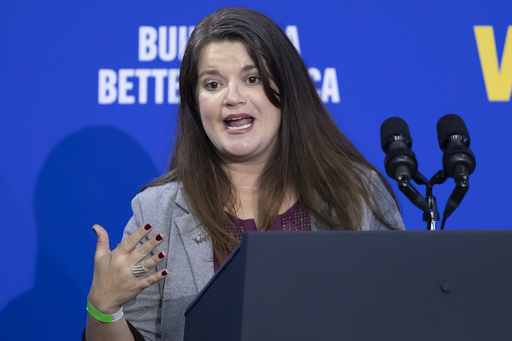SANTA FE, N.M. (AP) — New Mexico election officials violated public disclosure provisions of the National Voter Registration Act by refusing to provide voter rolls to a conservative group and its public online database, a federal judge has ruled.
The opinion and order Friday from Albuquerque-based U.S. District Court Judge James Browning mostly sided with the Voter Reference Foundation and its efforts to expand a free database of registered voters so that groups and individuals can take it upon themselves to try to find potential irregularities or fraud.
Election officials in several states and privacy advocates have raised alarms about a push by several conservative groups to gain access to state voter rolls, saying the lists could find their way into the hands of malicious actors and that voters could be disenfranchised through intimidation, possibly by canceling their registrations to avoid public disclosure of their home addresses and party affiliation.
New Mexico election law bans the publication of voter registration data. It restricts the use of the data to political campaigning and noncommercial government purposes. But Browning ruled that system “severely burdens the circulation of voter data among the public” and violates federal disclosure requirements.
“The data sharing ban largely deprives individuals and entities of the ability to engage with disclosed records in such a way that facilitates identification of voter registration-related irregularities,” Browning wrote.
His ruling builds on a federal appeals court ruling in February that Maine must release its voter list to another conservative-backed group, the Public Interest Legal Foundation, that’s conducting independent audits by comparing voter rolls in one state against those in another.
The Voter Reference Foundation’s VoteRef.com database so far includes information from 32 states and the District of Columbia. It is run by Gina Swoboda, an organizer of former President Donald Trump’s 2020 re-election campaign in Arizona who was chosen in January as chair of the Arizona Republican Party.
“We are very gratified that the court has upheld the right of the public to have meaningful access to vote rolls,” Swoboda said in a statement by email. “The intent of the public disclosure provision of the National Voter Registration Act is clear: namely, to allow the public to view the voter lists and associated list maintenance records to ensure proper voter list maintenance is being conducted. With this opinion the citizens of New Mexico can be assured of transparency in this key part of our elections process.”
Swoboda did not say how soon New Mexico voter list might be posted online. The foundation obtained New Mexico voter rolls through a vendor and first posted the records online in 2021, leading to a referral for potential prosecution. The foundation took the information offline and sued.
The New Mexico secretary of state’s office will appeal the order, said agency spokesman Alex Curtas.
Secretary of State Maggie Toulouse Oliver, a Democrat, “will continue to do everything in her power to advocate for the protection of voters’ personal information and ultimately encourage voter participation,” Curtas said in an email.
Curtas praised portions of the judge’s order that dismissed the foundation’s allegations that New Mexico engaged in free speech violations under its restrictions on the use of voter information.
Baseless claims of widespread voter fraud largely fueled by Trump’s insistence the 2020 presidential election was stolen are part of what’s driving conservative groups’ efforts to obtain the voter rolls, leading to lawsuits seeking voter registration data in several states, including Pennsylvania.
The Pennsylvania Office of Open Records has refused to hand over voter information to the Voter Reference Foundation, saying that publishing it would put every registered voter at greater risk of identity theft or misuse of their information.
Pennsylvania officials prevailed in state court, and the foundation in February sued in federal court to obtain the voter rolls, citing provisions of the National Voter Registration Act.
John Davisson, director of litigation at the Washington-based Electronic Privacy Information Center, said the federal rulings in New Mexico and Maine preserve state voter confidentiality programs for assault and stalking victims that conceal home addresses but otherwise would “essentially eliminate” state discretion on the release of voter lists.
“States have until now adopted confidentiality safeguards around voter data that vary in their details,” he said. “This is really cutting that all away and saying you can’t place those kinds of restricts on data disclosure.”


